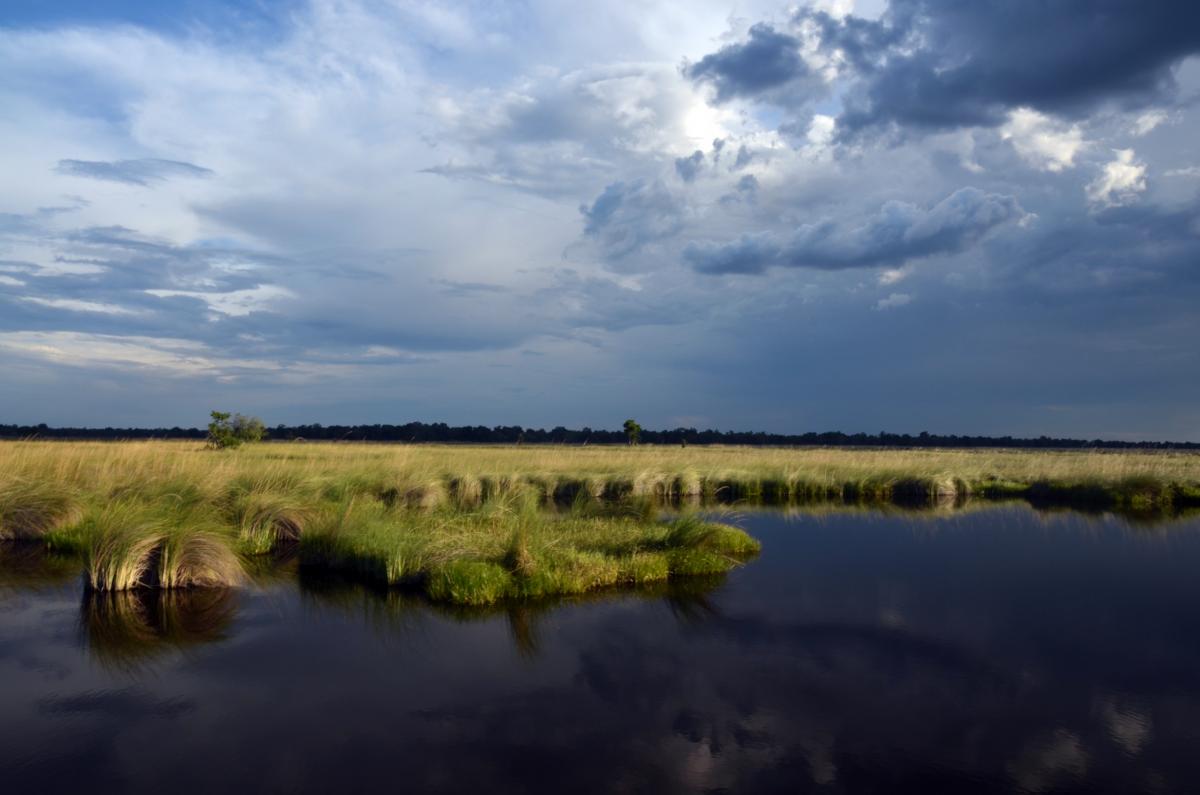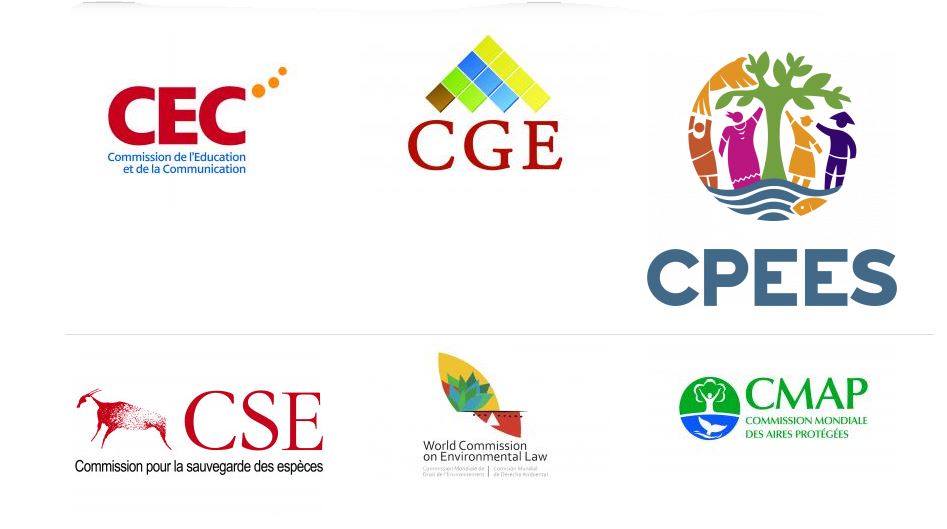Countries must use nature more in their climate commitments – IUCN report
Gland, Switzerland, 19 September 2019 (IUCN) – Countries are not fully taking into account the considerable potential of ecosystems such as mangroves and peatlands to tackle climate change in their commitments under the Paris Agreement, according to a report published today by IUCN and the University of Oxford.

Okavango Delta, Botswana – Wetlands are valuable natural infrastructure for preventing damage from floods.
Photo: Mark Gnadt
Although two-thirds of Paris Agreement signatories include nature-based solutions – actions to protect, restore and sustainably manage the world’s ecosystems – in their national climate targets, known as Nationally Determined Contributions (NDCs) under the Paris Agreement, these are currently not substantive or stringent enough, the report found.
“Natural areas such as forests, mangroves and peatlands could help us greatly enhance global climate ambition by 2020, while also protecting vulnerable communities from the worst impacts of climate change and conserving the rich diversity of life on this planet,” said IUCN Acting Director General Dr Grethel Aguilar. “This timely analysis clearly shows that all countries can strengthen their climate targets by substantially incorporating nature-based solutions within them. At next week’s UN Climate Action Summit, countries cannot afford to overlook nature’s full potential to help the world mitigate and adapt to climate change.”
To ensure that commitments translate into real change on the ground, countries need to include more concrete, quantifiable targets on nature-based solutions in their future NDCs, the report recommended. For example, currently only around 17% of NDCs that include nature-based solutions for climate adaptation set quantifiable targets. Similarly, over 70% of NDCs refer to restoring or conserving forests, but only 20% of these include quantifiable targets, and only 8% include targets expressed in tonnes of carbon dioxide equivalent, according to the report.
“Too often, people only think of forests when considering how nature can help address climate change. This report shows that countries are not yet incorporating the full spectrum of nature-based solutions – mangroves, peatlands, drylands in addition to forests – that could provide around a third of the climate mitigation needed by 2030 to successfully achieve the goals of the Paris Agreement,” said Dr Sandeep Sengupta, Global Coordinator of IUCN’s Climate Change Portfolio and the report’s co-author. “There is an urgent need to secure greater funding for nature-based solutions as well. As the climate crisis looms ever larger, we just cannot afford to ignore nature’s critical contribution.”
Most commitments aimed at mitigating climate change through nature focus on forests, with the potential of other ecosystems such as mangroves, peatlands or drylands largely underutilised, the report found. For example, only 19% of countries with coastal ecosystems recognise the potential of these habitats to mitigate climate change in their NDCs.
“Restoring, sustainably and equitably managing and conserving natural ecosystems presents a significant opportunity to increase climate ambition for all countries,” said Dr Nathalie Seddon, Professor of Biodiversity at the University of Oxford and the lead author of the report. “Not only does ecosystem stewardship help address the causes of climate change, it really helps us deal with the consequences as well. However, we need concrete, quantifiable commitments that fully harness nature-based solutions alongside ambitious emission cuts across other sectors if we are to match the sheer scale of the climate challenge we face.”
The report, Nature-based Solutions in Nationally Determined Contributions: Synthesis and recommendations for enhancing climate ambition and action by 2020 was released this week ahead of the UN’s Climate Action Summit in New York. It synthesises several major comparative assessments of nature’s prominence in countries’ NDCs to date, and offers recommendations for enhancing ambition and action by 2020 through the more substantive inclusion of nature-based solutions.
Nature-based solutions have an important role to play in addressing both the causes and consequences of climate change. Globally, ecosystems help slow global warming by capturing and storing significant amounts of carbon. Recent estimates suggest that natural climate solutions can provide around one-third of the cost-effective climate mitigation needed between now and 2030 to stabilise warming to below 2°C. They also provide a powerful defence against the impacts and long-term hazards of climate change.
The full report can be accessed here.
For more information or to set up interviews, please contact:
Matthias Fiechter, IUCN Media Relations, Tel: +41229990392, Email: matthias.fiechter@iucn.org
Goska Bonnaveira, IUCN Media Relations, Tel: +41792760185, Email: goska.bonnaveira@iucn.org



